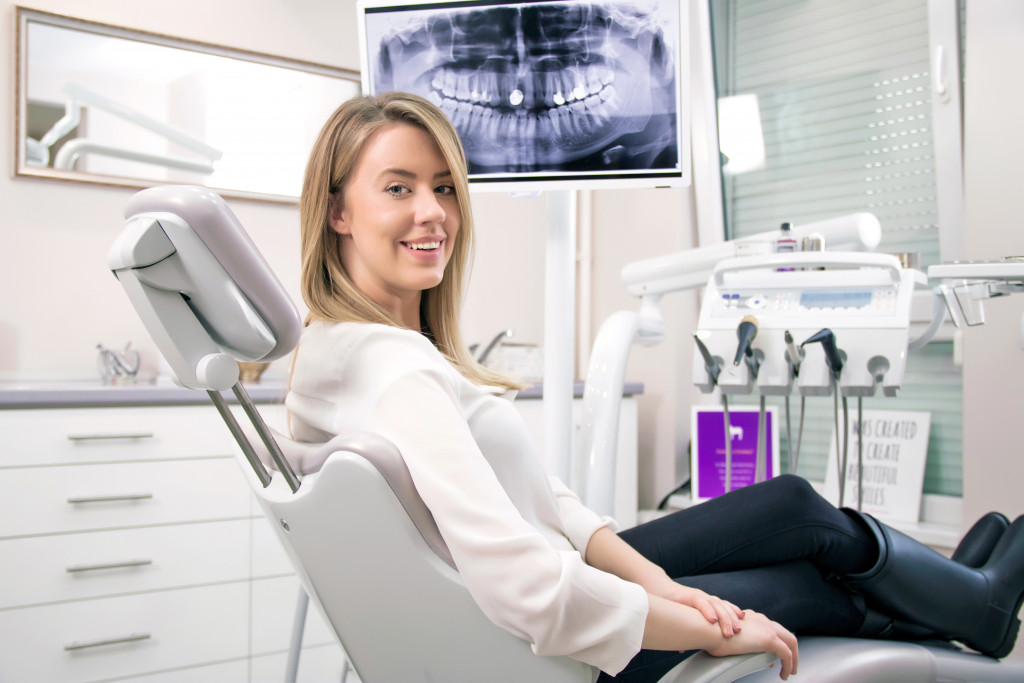Missing teeth can have a significant impact on your mental health. There is a strong connection between oral health and overall physical health. Still, many people underestimate the psychological effects that missing teeth can have. It’s important to understand these potential impacts, so you can take steps to protect your mental health.
The Social Effects of Missing Teeth
Missing teeth can be embarrassing and lead to self-consciousness in social situations. You may not feel comfortable smiling or speaking in public because you are worried about what other people might think about your teeth. This can cause social anxiety and lead to isolation from friends or colleagues. In some cases, it may even lead to depression or low self-esteem. Although people around you assure you that it’s not a big deal, it can still be difficult to feel comfortable and confident in social settings.
One more way missing teeth can affect your social life is by limiting the foods you eat. Chewing and enjoying some of your favorite dishes can be difficult if you miss several teeth. This can lead to avoiding certain restaurants or eating out with friends altogether. This could affect how you socialize and leave you feeling lonely.
The Workplace Effects of Missing Teeth
Missing teeth may also have implications for your career. Studies have shown that people with missing teeth are less likely to be hired than those with a full smile. A gap in your teeth can lead to difficulty speaking clearly or communicating effectively. This could lead to missed job opportunities and difficulties with colleagues or clients. Additionally, it can be difficult to maintain a professional appearance if you are self-conscious about your smile.
What your colleagues think of you may also affect how you perceive yourself. If people comment about your missing teeth, it can hurt your confidence and make you feel like you don’t belong or aren’t accepted in the workplace.
The Physical Effects of Missing Teeth
Having missing teeth can also affect your physical well-being in various ways. For example, it is much harder to chew food without all your teeth, making it difficult to maintain a balanced diet. If you are unable to eat properly, this could lead to malnutrition and other health issues such as fatigue or poor digestion. Additionally, missing teeth may create misalignment problems with the jaw and cause discomfort when speaking or eating certain foods.
Missing teeth may also result in more serious physical issues such as gum disease. Without all your teeth in place, food debris and plaque can more easily accumulate in the mouth, leading to infection or tooth decay. You may also frequently feel pain in your teeth or gums. This is due to the shifting or grinding of the teeth that may occur when you miss one or more teeth.
You may also find it hard to enjoy physical activities such as running, swimming, or playing sports because of the discomfort caused by missing teeth, such as jaw pain or difficulty breathing. These physical symptoms can be uncomfortable and painful, making it difficult to enjoy an active lifestyle.
What Can Be Done About Missing Teeth?
If you suffer from missing teeth due to dental decay, trauma, or any other reason, treatments can help restore your smile and improve your quality of life. Getting dental implants is the most common and successful treatment for missing teeth. Implants are artificial tooth root replacements that provide a durable foundation for prosthetic teeth, such as crowns or bridges. This procedure has helped many people improve their self-confidence and get back to living life to the fullest.
Another option is dentures. These involve wearing removable prosthetic devices that replace multiple missing teeth instead of just one tooth at a time, like implants. This option is recommended for people who are missing several teeth or an entire arch of teeth. Dentures can help improve your appearance, speech, and chewing ability.
Finally, bridges are the most common way for patients with several consecutive missing teeth to restore their smiles without having surgery or wearing removable prosthetics. Bridges involve attaching an artificial tooth between two healthy existing ones using metal frameworks or resin bonding materials for extra support when chewing food or talking normally.
No matter the cause—dental decay, trauma, or genetics—missing teeth can significantly impact physical and mental health. It’s important to understand how this condition affects everyone differently so you can identify the best treatment options for restoring your smile and improving your quality of life in the long run! With proper care and regular check-ups with your dentist, you should be able to keep your restored smile looking beautiful for years!


